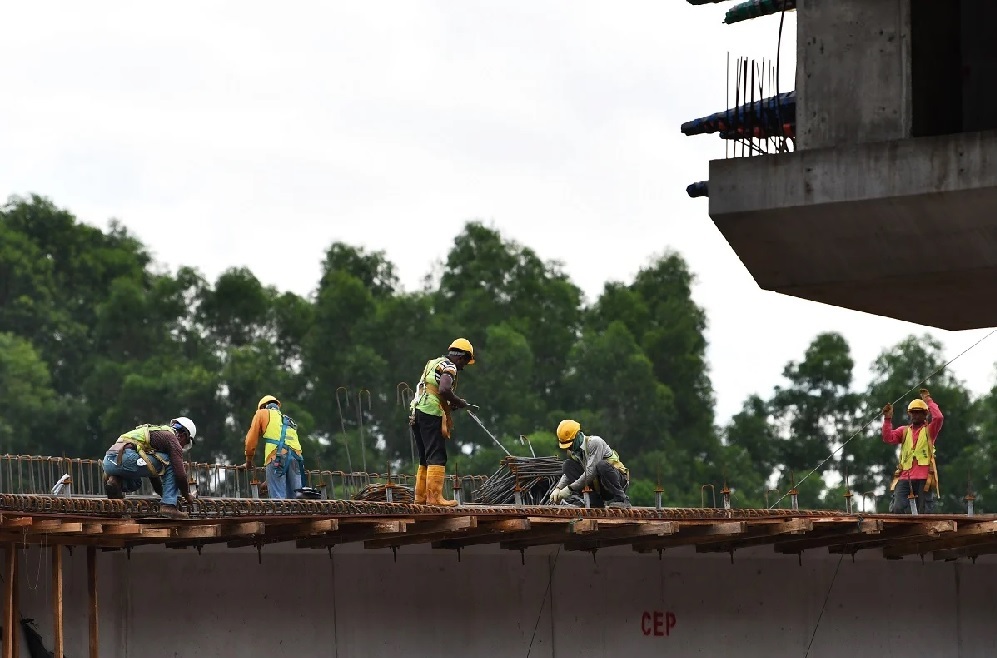Amending Act to improve workers accommodation will raise business costs

KUALA LUMPUR (Feb 6): Migrant workers might not be the source of cheap labour in Malaysia soon.
The Government’s proposed amendment of the Workers' Minimum Standards of Housing and Amenities Act 1990 is bound to raise costs for businesses which employ a large number of foreign workers.
Yet the amendment is deemed necessary as the country continues to grapple with rising Covid-19 cases, now worsened by growing workplace clusters which are believed to be spurred by cramped accommodation of foreign workers.
Furthermore, the continued bad press on the poor living conditions of migrant workers in Malaysia will not help the country’s reputation in the international arena.
Economists acknowledge that the new mandatory requirements will cause sharp pain to entrepreneurs in the short term but will yield long-term benefits, particularly in terms of ESG (environment, social and governance) compliance.
The manufacturing sector has detected 128 Covid-19 clusters of infections — the highest number of clusters by sector, followed by 82 clusters in the construction sector and 61 clusters in the services sector.
As such, the Government will be amending the Act based on the power granted to it through the Emergency Ordinance, announced the Prime Minister Tan Sri Muhyiddin Yassin in a special televised message yesterday.
Foreign workers for the longest time have been considered to be cheap labour for many businesses.
Over the past two decades, Malaysian business owners have largely been dependent on low-paid migrant workers to gain cost competitiveness.
So an increase in cost for them could take away the advantage that many companies had relied on.
Malacca Securities head of research Loui Low says the amendment is good news for the migrant workers, but does acknowledge that costs will increase for employers.
“In what quantum...that will depend on their operating costs. Some labour intensive sectors will still have to depend on [foreign workers] as they have no alternative,” he told The Edge.
The Act requires employers to ensure that workers' accommodation complies with minimum standards.
Muhyiddin said the amendment will include the compulsory requirement for employers to provide accommodation that fulfils the set standards; to bear the cost of accommodation, transfer and testing of workers; to monitor foreign workers during working hours at the premises and after work at their accommodation; and to ensure the accommodation centre agencies provide accommodation that meets the standards and requirements set by the Government.
MIDF Research economist Abdul Mui’zz Morhalim agrees that if all the charges are to be borne by employers, the amendments are expected to add to compliance and hiring costs.
This will mainly affect businesses that rely on foreign workers, particularly in the manufacturing and construction sectors, he said. Nonetheless, he does not think the amendment of the Act will significantly discourage businesses to reduce reliance on foreign workers because of the cost advantage.
“In other words, we foresee little to no change to the job outlook for the affected sectors. However, without the final details, it is rather difficult to gauge how the amendments would have any significant impact on businesses in terms of financial implications and hiring strategy,” Abdul Mui’zz told The Edge.
Realistically, apart from cost factor, many locals are reluctant to take up the dirty and dangerous jobs that are currently being done by the migrant workers.
Sunway University economics professor Dr Yeah Kim Leng is of the view that there will be an immediate impact on company financial performance especially for firms that have under-provided housing.
Though industries enjoying good profit margins would not face difficulties save for lower profits, he added.
“Those operating with thin margins would be hard pressed. They may require a longer grace period but due to the pandemic, they will have to find the means so that the intertwined pandemic and economic problems can be tackled successfully.
“The remedy is long overdue and the short-term pain is necessary not just because of the public health crisis and foreign workers’ rights, but also to equalize the cost of hiring locals and accelerate automation and industrial upgrading that have been stalled by the easy availability of cheap foreign labour,” Yeah said.
The issue of cramped and congested living conditions for foreign workers has been in the spotlight over the past few months after Health director general Tan Sri Dr Noor Hisham Abdullah pointed out in May last year that the rise of Covid-19 cases could be attributed to these factors.
Last year the Human Resources Ministry published new rules for the minimum standards that employers must follow from Sept 1 if they provided housing for their employees, the failure of which will result in a fine of up to RM50,000.
These include providing basic items such as fans and lamps, as well as a minimum floor area of at least three square metres in the sleeping area, amongst many other requirements.
Get the latest news @ www.EdgeProp.my
Subscribe to our Telegram channel for the latest stories and updates
Follow Us
Follow our channels to receive property news updates 24/7 round the clock.
Telegram

Latest publications
Malaysia's Most
Loved Property App
The only property app you need. More than 200,000 sale/rent listings and daily property news.
